Marco Grasso
University of Bologna
Single-Step Reconstruction-Free Anomaly Detection and Segmentation via Diffusion Models
Aug 06, 2025Abstract:Generative models have demonstrated significant success in anomaly detection and segmentation over the past decade. Recently, diffusion models have emerged as a powerful alternative, outperforming previous approaches such as GANs and VAEs. In typical diffusion-based anomaly detection, a model is trained on normal data, and during inference, anomalous images are perturbed to a predefined intermediate step in the forward diffusion process. The corresponding normal image is then reconstructed through iterative reverse sampling. However, reconstruction-based approaches present three major challenges: (1) the reconstruction process is computationally expensive due to multiple sampling steps, making real-time applications impractical; (2) for complex or subtle patterns, the reconstructed image may correspond to a different normal pattern rather than the original input; and (3) Choosing an appropriate intermediate noise level is challenging because it is application-dependent and often assumes prior knowledge of anomalies, an assumption that does not hold in unsupervised settings. We introduce Reconstruction-free Anomaly Detection with Attention-based diffusion models in Real-time (RADAR), which overcomes the limitations of reconstruction-based anomaly detection. Unlike current SOTA methods that reconstruct the input image, RADAR directly produces anomaly maps from the diffusion model, improving both detection accuracy and computational efficiency. We evaluate RADAR on real-world 3D-printed material and the MVTec-AD dataset. Our approach surpasses state-of-the-art diffusion-based and statistical machine learning models across all key metrics, including accuracy, precision, recall, and F1 score. Specifically, RADAR improves F1 score by 7% on MVTec-AD and 13% on the 3D-printed material dataset compared to the next best model. Code available at: https://github.com/mehrdadmoradi124/RADAR
From Data Complexity to User Simplicity: A Framework for Linked Open Data Reconciliation and Serendipitous Discovery
May 24, 2024Abstract:This article introduces a novel software solution to create a Web portal to align Linked Open Data sources and provide user-friendly interfaces for serendipitous discovery. We present the Polifonia Web portal as a motivating scenario and case study to address research problems such as data reconciliation and serving generous interfaces in the music heritage domain.
Real-time Detection of Clustered Events in Video-imaging data with Applications to Additive Manufacturing
Apr 23, 2020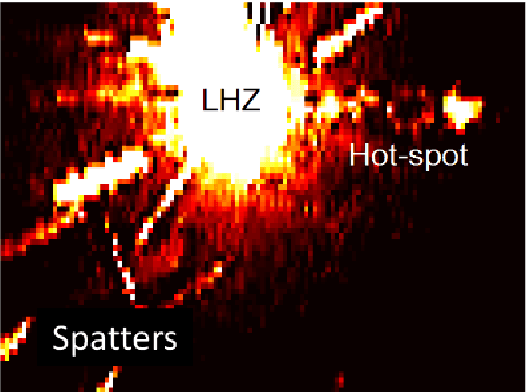
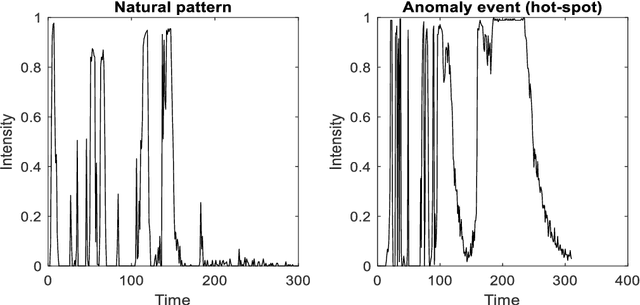

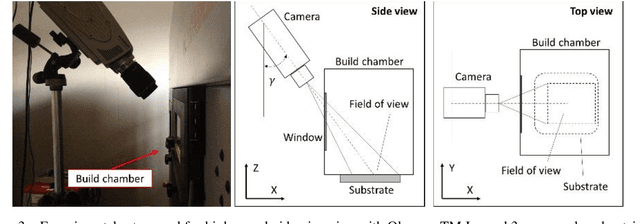
Abstract:The use of video-imaging data for in-line process monitoring applications has become more and more popular in the industry. In this framework, spatio-temporal statistical process monitoring methods are needed to capture the relevant information content and signal possible out-of-control states. Video-imaging data are characterized by a spatio-temporal variability structure that depends on the underlying phenomenon, and typical out-of-control patterns are related to the events that are localized both in time and space. In this paper, we propose an integrated spatio-temporal decomposition and regression approach for anomaly detection in video-imaging data. Out-of-control events are typically sparse spatially clustered and temporally consistent. Therefore, the goal is to not only detect the anomaly as quickly as possible ("when") but also locate it ("where"). The proposed approach works by decomposing the original spatio-temporal data into random natural events, sparse spatially clustered and temporally consistent anomalous events, and random noise. Recursive estimation procedures for spatio-temporal regression are presented to enable the real-time implementation of the proposed methodology. Finally, a likelihood ratio test procedure is proposed to detect when and where the hotspot happens. The proposed approach was applied to the analysis of video-imaging data to detect and locate local over-heating phenomena ("hotspots") during the layer-wise process in a metal additive manufacturing process.
LTLf and LDLf Monitoring: A Technical Report
Apr 30, 2014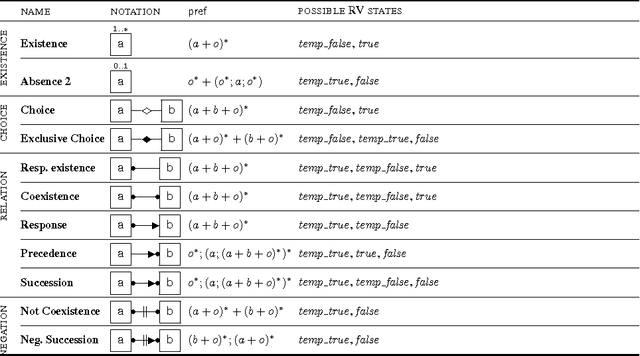
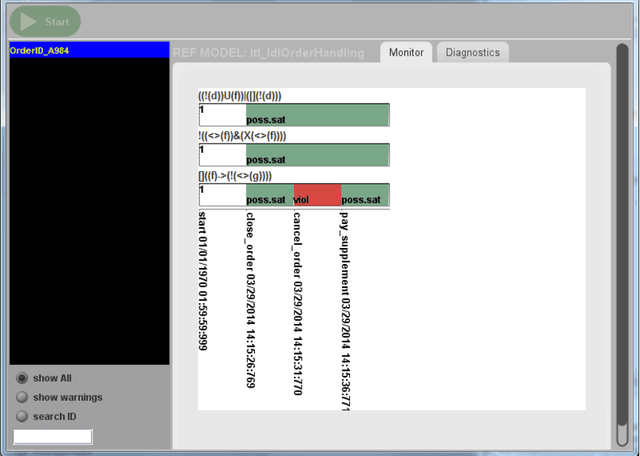
Abstract:Runtime monitoring is one of the central tasks to provide operational decision support to running business processes, and check on-the-fly whether they comply with constraints and rules. We study runtime monitoring of properties expressed in LTL on finite traces (LTLf) and in its extension LDLf. LDLf is a powerful logic that captures all monadic second order logic on finite traces, which is obtained by combining regular expressions and LTLf, adopting the syntax of propositional dynamic logic (PDL). Interestingly, in spite of its greater expressivity, LDLf has exactly the same computational complexity of LTLf. We show that LDLf is able to capture, in the logic itself, not only the constraints to be monitored, but also the de-facto standard RV-LTL monitors. This makes it possible to declaratively capture monitoring metaconstraints, and check them by relying on usual logical services instead of ad-hoc algorithms. This, in turn, enables to flexibly monitor constraints depending on the monitoring state of other constraints, e.g., "compensation" constraints that are only checked when others are detected to be violated. In addition, we devise a direct translation of LDLf formulas into nondeterministic automata, avoiding to detour to Buechi automata or alternating automata, and we use it to implement a monitoring plug-in for the PROM suite.
 Add to Chrome
Add to Chrome Add to Firefox
Add to Firefox Add to Edge
Add to Edge